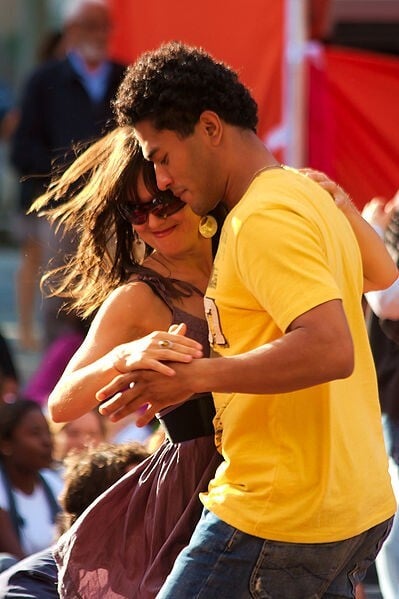
There's a word on the other side of the work-life balance hyphen that seldom gets much attention in our busy lives, but is essential to understanding if we are to spend time outside work in the most gratifying way, whether with family, friends, or on your own. That word: Life. It's thing we're working for, so why not spend a couple of minutes examining how we can get more quality time at it?
There's no work-life balance without life, and no life without skills many of us have long-since forgotten. We've got our life cut out for us.
The importance of life activation was brought home to me in an interview with Stanford's Mark Cullen, who studied retired executives. After lucrative careers in the financial world on Wall Street, these men walked out the door to retirement, and in days felt worthless. Their identity was tied up solely in output, and Cullen told me, "they had no leisure skills." They didn't know what to do with themselves in retirement. Some were dead within a year.
INTERESTS MAKE LIFE INTERESTING
We can get back to life by zeroing in on interests and affinities we used to have. Remember? Show me someone with a lot of interests, and I’ll show you someone who finds life interesting. Experts say it’s the range of activities you’re exposed to that gives you the best chance at a thriving life beyond work.
When you get stuck in a rut—kids with soccer, video games; adults with golf or poker—you limit the universe of what can really excite you because you limit your play and life skills. That’s important, because if you have a passion, researchers say you can add eight hours of joy to your week, which is one of the best stress management weapons available.
Finding potential passions is like wine-tasting. The idea is to sample many kinds of activities, some of which grab your liveliness buds, while others may not quench your thirst. Where do you find the vintages that hit the spot? Start tasting, beginning with things that:
• You used to love but dropped
• You’ve been wanting to try but haven’t
• Make you happy
• Look intriguing
• Look fun but you think you can’t do
• Are affinities and areas of interest
• Are out of left field, but you want to try
THE PROBLEM WITH ADULTS
Adults weren't always so clueless about getting a life. We lose the leisure skills we had as kids and rule out most anything new because we don’t want to look like fools. So we stop learning, something our brain neurons hate because they want novelty and challenge.
We have to get reoriented to stepping in to the spice of life—jumping into things we don’t know how to do. How? With a fabulous tool we had as children: enthusiasm. Be eager about trying new things like you once were, since that is where we discover things that make us excited to be alive.
That’s easier to do when you don’t use the work mind to try to access your leisure life. The work mind is about results and outcomes, The life mind is about intrinsic, not external goals, about being in the experience for the sake of it, the fun of it, not where it’s going or how well you do it.
If you let the work mind ask: What am I going to get out of that bowling night or pottery class, the answer will be nothing productive, so you drop it since there’s won't be any instrumental gain. The “only” thing you get from recreational outlets and hobbies is the life you’re working for.
Your new mantra, then, for disconnecting in off-hours is do it to do it. Eagerness comes with the anticipation of learning something we want to know or experience. We all knew that as kids. Back then, it didn’t matter if you knew how to do the activity or what people might think of you if you didn't, or if you were going to make a fool of yourself, you just plunged in.
THE MEANING IN LIFE OF SALSA
Richard Weinberg, a highly successful businessman in Chicago, went out one night with his wife to a Mexican restaurant. After dinner, waiters removed the tables, opened up a dance floor, and the salsa music started. His wife tried to get him out on the dance floor, but, being an adult American male, he wasn’t having any of it. No way was he going to make a fool of himself.
His wife had so much fun dancing with the waiters, though, that the next day Weinberg reconsidered. He decided to take a dance lesson at a studio called Chicago Dance. Then he took another one and another. Six years later, at the age of 55, he was dancing professionally in 14 different dance categories, and he won a national competition.
Weinberg told me something that is a wakeup call for all of us. “Until I discovered dancing, I didn’t know I wasn’t really living,” he said. “Now that I have dancing, I feel like I have a purpose in my life.” This is someone who has achieved the American Dream and has no concerns for money. This is how important the life side of work-life balance is.
HAPPINESS = INTENTIONAL ACTIVITIES
With 50% of our potential happiness due to genetic inheritance (sorry about that; you’re stuck with what you got) and 10% due to circumstance (the state of your health, environment you are raised in), you have only 40% you can control. It falls into a realm known as intentional activities. Research by Kennon Sheldon and Sonia Lyubomirsky shows that the two keys to sustainable happiness are initiating intentional activities and sustaining them.
So searching out and initiating intentional activities are THE place to start activating life and happiness. Where to look? Identify which of the following genres of R&R fit your interests. Which are you curious about? Which offer the most fun, challenge, or interest?
• Hobbies and crafts
• Creative arts
• Games
• Sports, fitness
• Dance
• Outdoors
• Music
• Science, mind play
• Volunteering, service
Once you have identified genres you like, then open your Internet browser and start digging in to the activities within them to sample. What would be the most fun? What would you really like to learn?
Having an enthusiasm that connects with you at a core level gives you something to look forward to and provides meaning that can transform your life. The surfer checking the weather report every morning, the artist who can’t wait to get home and paint a canvas, the table tennis player hooked on Sunday pickup matches at the local college—they have an extra gear or two of aliveness when a favorite activity becomes an extension of who and what they’re about. They’re excited to be here.
You will be, too, when you find an activity that unleashes your own mastery need, one of the most powerful stress buffers and the ticket to satisfy your core needs of competence and autonomy. Repeated effort through practice operates as a self-propulsion agent, leading to improved skills and further interest until the activity is internalized as part of your being and begins to define your identity.
Passions pay off in so many ways. They increase positive emotions and optimal experience during the activity and boost positive mood and decrease negative feeling and stress afterward. But that’s something you already understood—when you were five years old.
If you would like more details on our work-life balance programs for organizations, click the top button of the two below.






